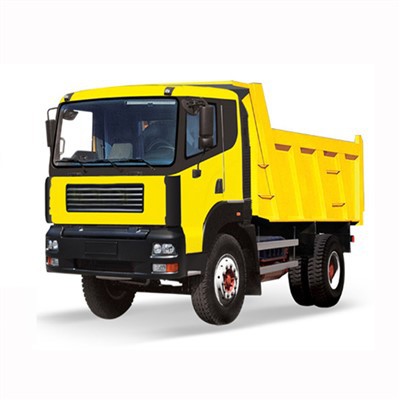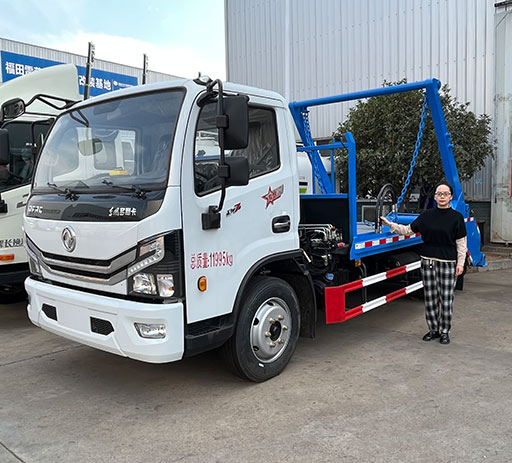Understanding the Roll Off Garbage Truck: A Comprehensive Guide
Managing waste efficiently is vital for maintaining clean and sustainable environments. One of the key players in waste management is the roll off garbage truck. This article aims to delve deep into what roll off garbage trucks are, how they operate, their advantages, and practical tips for those considering their use. Whether you are a contractor, a homeowner doing a clean-up, or a business owner, understanding roll off garbage trucks can help you make informed decisions about waste disposal.
What is a Roll Off Garbage Truck?
A roll off garbage truck is a specialized vehicle designed to transport large containers, called roll-off containers, to and from waste disposal sites. These trucks are essential for handling bulk waste and debris, commonly used in construction, renovation projects, and large-scale cleanouts.
Key Features of Roll Off Garbage Trucks
- Open-top Containers: Roll-off containers typically have an open design, allowing for easy loading of various waste types.
- Variety of Sizes: Containers come in various sizes, ranging from 10 to 40 yards, to accommodate different waste volumes.
- Roll-off Mechanism: The trucks are equipped with hydraulic systems that enable the containers to roll off and on to the truck bed.

How Do Roll Off Garbage Trucks Work?
The operation of a roll off garbage truck is straightforward. Here’s a step-by-step breakdown:
Loading
The truck arrives at the designated pickup location with an empty roll-off container. The following steps occur during the loading process:
- The truck backs up to the loading area.
- The hydraulic system lowers the container to the ground.
- The operator slides or rolls the container into the loading position.
- Once filled, the truck engages the hydraulic system to lift the container back onto the truck bed.
Transporting
After loading, the truck transports the container to a landfill, recycling facility, or other disposal sites. The process includes:
- Securing the load for safe transport.
- Driving to the disposal location, adhering to safety regulations.
Unloading

Upon arrival at the disposal site, the unloading process involves:
- Positioning the truck for unloading.
- Using the hydraulic mechanism to roll the container off the truck.
- Ensuring proper placement at the disposal site.
Advantages of Using Roll Off Garbage Trucks
Versatility
Roll off trucks can handle various waste types, including construction debris, yard waste, and general trash. This versatility makes them suitable for different industries.
Cost-Effective
For large waste disposal, roll off trucks can be more economical than multiple smaller truckloads. They allow for bulk disposal without frequent pickups.
Convenience

Renting a roll-off container simplifies the waste management process. It saves time and effort, especially during extensive projects.
Choosing the Right Roll Off Garbage Truck
Determine Your Needs
Assess the type and volume of waste you need to dispose of. This helps in selecting the appropriate container size. Here’s a simple guide:
| Container Size (Yards) | Typical Use | Approx. Weight Capacity (lbs) |
|---|---|---|
| 10 | Small renovations, cleanouts | 2,000 |
| 20 | Medium remodels, landscaping projects | 4,000 |
| 30 | Larger jobs, heavy waste | 6,000 |
| 40 | Major construction, large-scale renovations | 8,000 |
Compare Rental Services
Check various rental services for pricing, availability, and customer reviews. Some aspects to consider include:
- Delivery and pick-up schedules
- Pricing structures (flat rates, weight fees, etc.)
- Customer support
Best Practices for Loading and Using Roll Off Containers
Maximize Space
To avoid overflow and make the most out of your container:
- Break down large items like furniture or appliances.
- Distribute weight evenly to prevent tipping.
Follow Local Regulations
Different municipalities have specific regulations on waste disposal. Familiarize yourself with local codes to avoid fines.
Schedule Regular Pick-ups
If you have ongoing projects, schedule regular pick-ups to prevent overloading the container.
Environmental Considerations with Roll Off Garbage Trucks
Recycling Opportunities
Many items can be recycled rather than sent to landfills. Consider separating recyclables to reduce your environmental impact. Common recyclables include:
- Paper and cardboard
- Metals
- Plastic containers
Composting
For organic waste, explore options for composting to return nutrients back to the soil.
Common Issues and How to Address Them
Overloading Containers
Ensure that you don’t exceed the weight limit of the container. Overloaded containers can lead to legal issues or extra fees.
Inconvenient Delivery and Pickup
To avoid scheduling conflicts, coordinate pick-up times carefully and provide clear access to your site for the truck.
Roll Off Garbage Truck FAQs
1. How much does it cost to rent a roll off garbage truck?
The cost varies depending on location, container size, and rental duration. Generally, prices can range from $250 to $600.
2. What can I put in a roll off container?
You can dispose of construction debris, household clutter, yard waste, and more. However, hazardous materials like chemicals and batteries are usually prohibited.
3. How long can I keep the roll off container?
Most rental companies offer containers for a week, but extensions may be available for an additional fee.
4. Are there weight limits for roll off containers?
Yes, weight limits vary by container size but typically range between 2,000 and 8,000 lbs. Exceeding these limits can incur extra charges.
5. Can I place a roll off container on the street?
You may require a permit from your local authority to place a container on the street. Always check local regulations beforehand.
6. How do I prepare for a roll off container delivery?
Ensure there is a clear, accessible area for the truck to deliver and pick up the container. Also, provide adequate space for turning and maneuvering.
